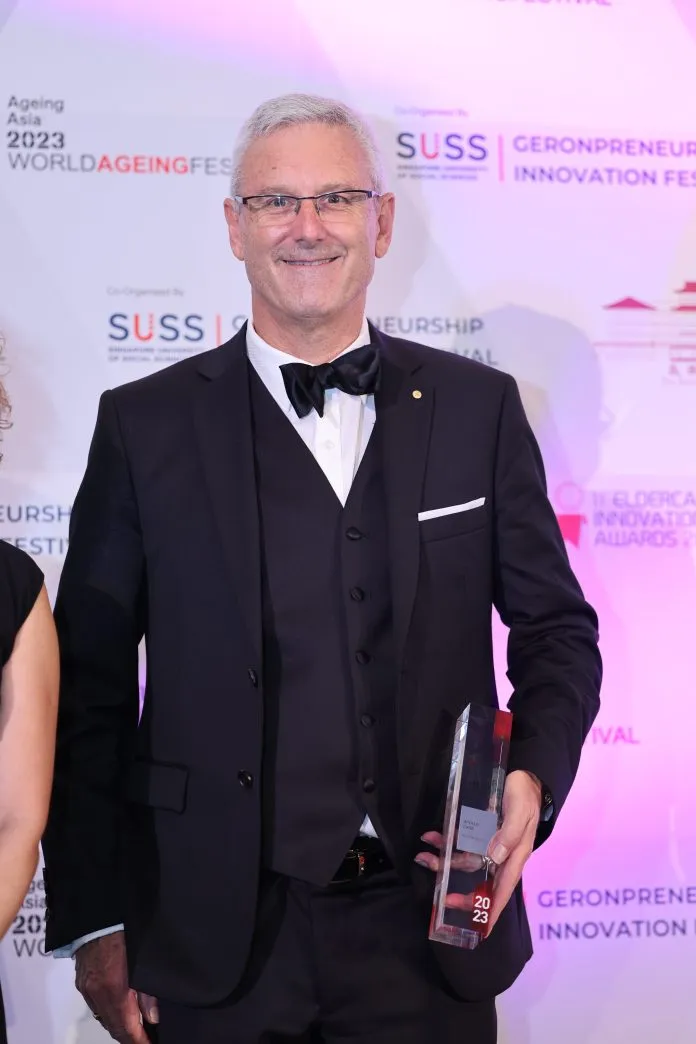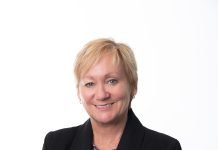
In this interview, we speak with Stephen Becsi OAM (former CEO Bethanie WA) about the Apollo Care model that has seen remarkable growth since its launch in July 2020, with a string of acquisitions and a track record for turning businesses around – both in areas to do with quality and compliance and generating a positive EBITDAR in around 6 months…
IA: Thank you for joining us today, Stephen. We want to learn more about the story behind Apollo and the innovative approach you’ve taken in the aged care sector. Firstly, congratulations on Apollo’s recognition in the Asia Pacific Eldercare Innovation Awards where you won Innovation of the Year (Productivity) for organisational efficiencies and delivery of quality care.
Stephen: At Apollo, we have focused on acquiring aged care providers, particularly regional Not- for-Profit (NFP) organisations, and implementing our innovative strategies to improve their operations. Since our establishment in July 2020, we have successfully acquired seven aged care providers, with another six acquisitions currently in progress.
Our approach is to invest under existing brands such as PresCare and Harden Grange for example, which allows us to maintain the community connection with these facilities – in many ways – we are a house of brands!
By leveraging a virtual distributed management network and operating everything in the cloud, we can efficiently manage our operations across Australia. We have created a virtual C-Suite, comprising experts in various areas, which enables us to deliver management and support to regional areas.
When we acquire providers, we minimise overheads by eliminating the need for a traditional head office and subsequent depreciation costs attached to a big building. This allows us to operate at a lower cost than the industry benchmark. Additionally, we have the advantage of being able to raise capital, which is not possible for Not-for-Profit businesses.
IA: It’s impressive to see the extensive investment in technology and the cloud-based approach you’ve adopted. Could you tell us more about the technologies and innovations that contributed to Apollo’s success?
Stephen: Absolutely. One of our key innovations is our bespoke tech platform built on Microsoft Azure, operating on a Software-as-a-Service (SAAS) system. This platform incorporates clinical, HR, and finance functions, all in the cloud, allowing us to run contemporary applications efficiently. We have recently switched to a new clinical system, enabling us to acquire facilities more quickly and seamlessly transition them to cloud-based operations.
To ensure quality management and compliance, we have developed a bespoke Quality Management System (QMS). This system matches policies, processes, and procedures against quality standards, and we have real-time reporting on the state of every facility’s compliance. This allows us to address any compliance issues promptly and ensure our residents receive the highest standard of care.
Furthermore, we have implemented a well-being system, which measures four key behaviours within our organisation. This system approximates a balanced scorecard and focuses on the four behaviours of a great organisation. We are also researching the 11 business attributes that support these behaviours, including on the financial performance front, monitoring revenue and cost drivers, care staff costs, administrative costs, agency costs, occupancy, and tracking care minutes for quality care delivery.

Focusing on these behaviours can improve the well-being of our residents and staff and the health of our business. At a granular level, this ensures we meet strict requirements that underpin compliance and financial health. Some further examples include ensuring that statements go to Medicare within 2 days of the end of the month; monitoring indirect costs such as accommodation services and occupancy costs.
We think it is the most advanced online dashboard of its kind in the country.
It’s worth noting that we rely on internal systems rather than external consultants to measure and enhance these aspects, which is another significant cost saving as many providers are currently finding out the hard way.
IA: Staffing is a significant challenge in the aged care sector. How has Apollo addressed this issue and worked towards attracting and retaining good people?
Stephen: We have implemented several strategies to attract and retain good people. Firstly, we invest heavily in technology to create a supportive work environment. Our SaaS systems streamline administrative tasks using mobile devices, allowing our staff to focus more on delivering care to the residents. Additionally, we utilise technology to aid in staff retention, such as our advanced online dashboard that provides real-time data and supports decision-making and handovers. No need to go to a nursing station to log information – it can all be done via a mobile device at the resident’s side.
We also prioritise well-being and engagement in all our facilities. Our Age-Rite system measures and improves the well-being of our residents, considering not only their physical health but also their psychological, emotional, and spiritual needs, which also adds to staff fulfilment and a better work environment. By fostering a positive work culture, providing opportunities for growth and development, and utilising technology effectively, we aim to create a rewarding experience for all of our staff.
IA: The financial health of aged care providers is a significant concern and I would imagine attracting investors could be tricky. Could you provide some insights into the financial aspects of Apollo’s operations and how you’re managing the financing of acquisitions?
Stephen: Currently, we rely on conviction-based high-net-worth individuals who believe in our mission and invest in our projects. Super funds typically require deals of $50 million to $100 million before considering investments, so we primarily rely on individuals and the community for financing. In the case of the Harden Grange acquisition the community contributed and now has a say in the running of the facility through board representation.
In fact, with all our acquisitions we have board representation from the communities of origin and their related stakeholders to ensure that community connection is maintained. We also bring our expertise to bear when it comes to governance.
While ethical investment funds are an attractive option, they usually require larger investments. Our current raise is $20 million, which is still relatively small for many funds, including ethical ones. However, we have a substantial pipeline of projects and acquisitions we are looking to finance, and we continue to explore different avenues for investment.
IA: Thank you









